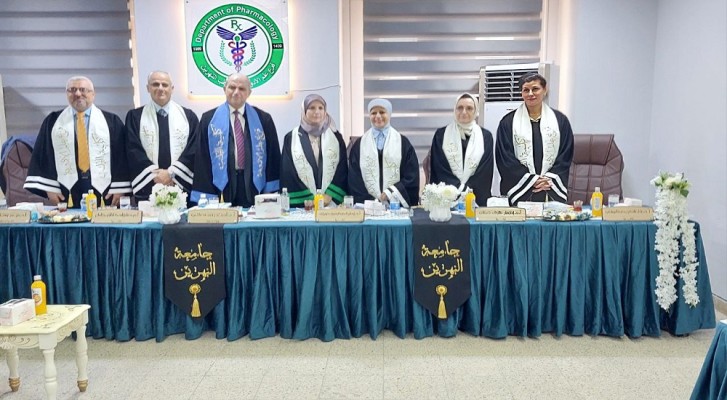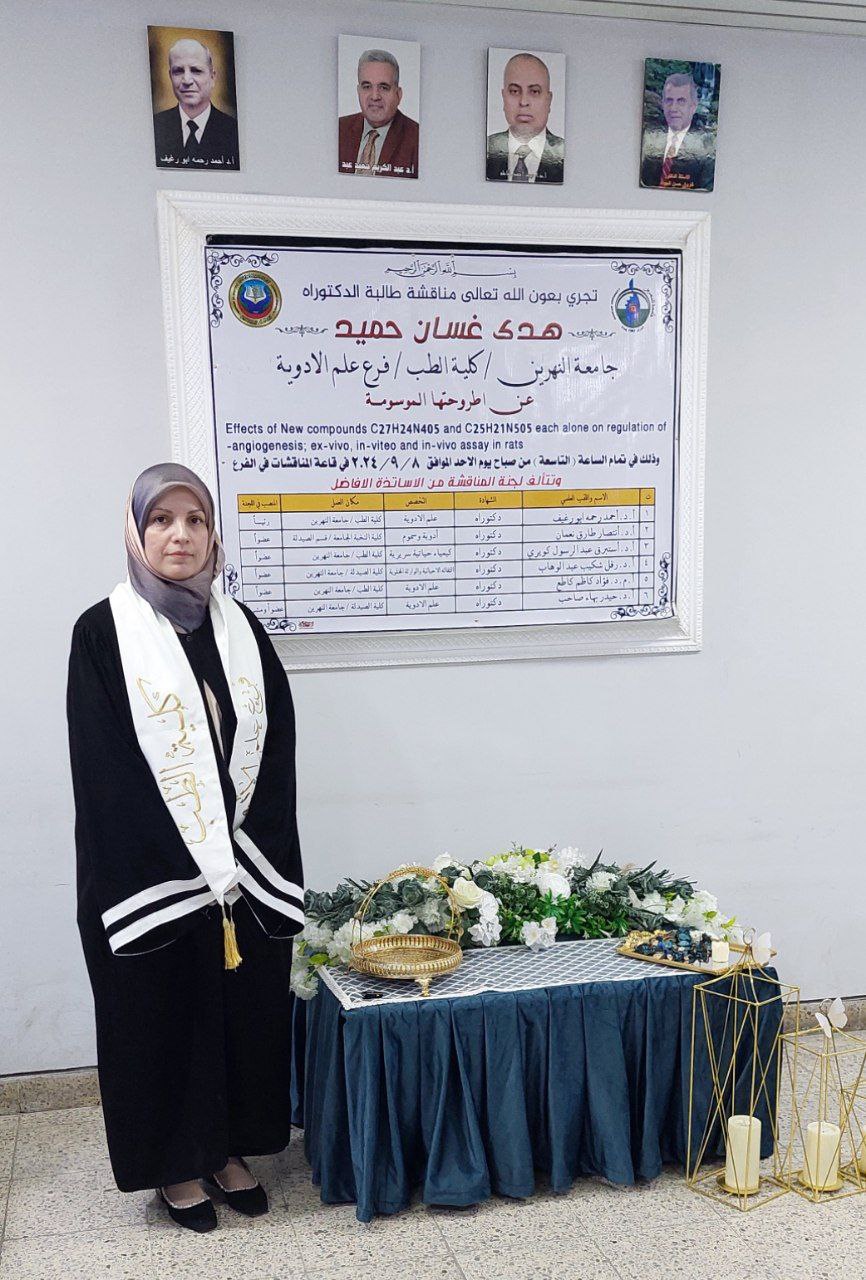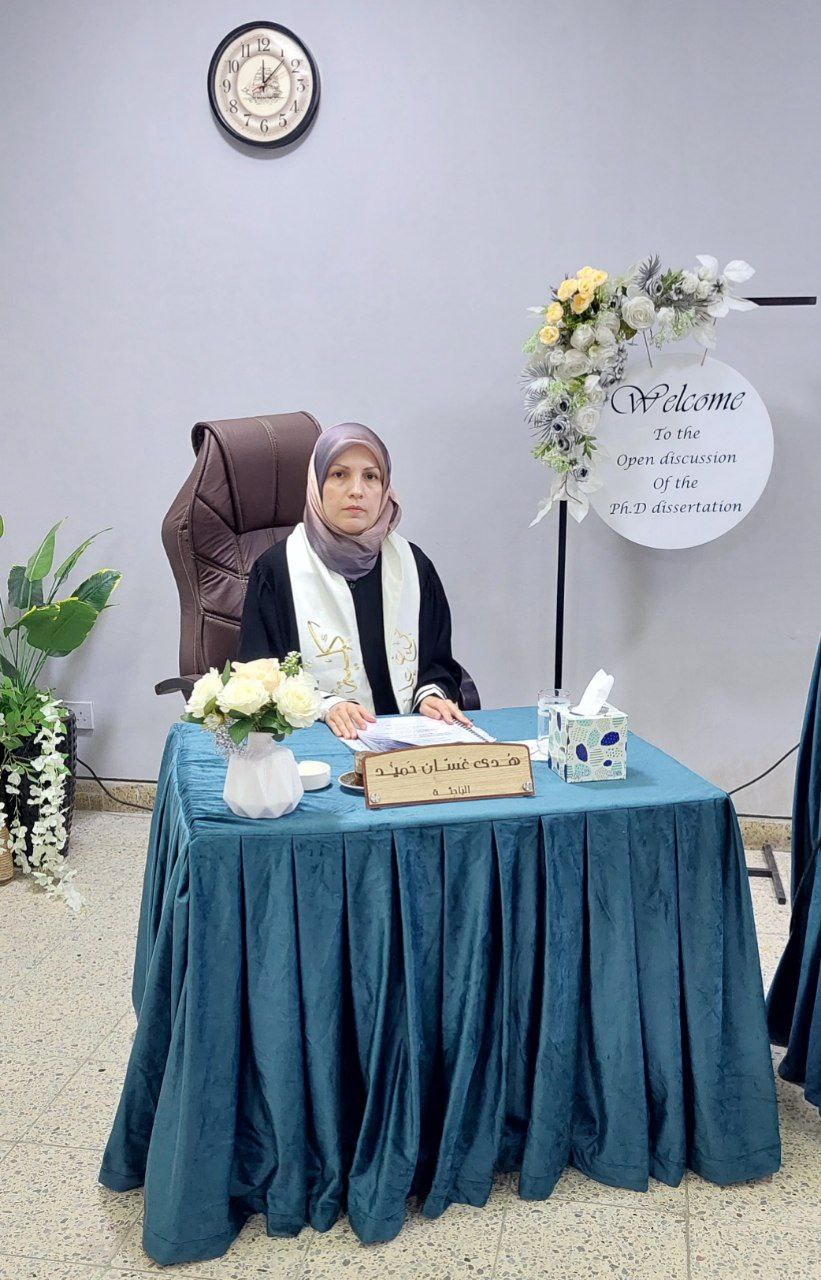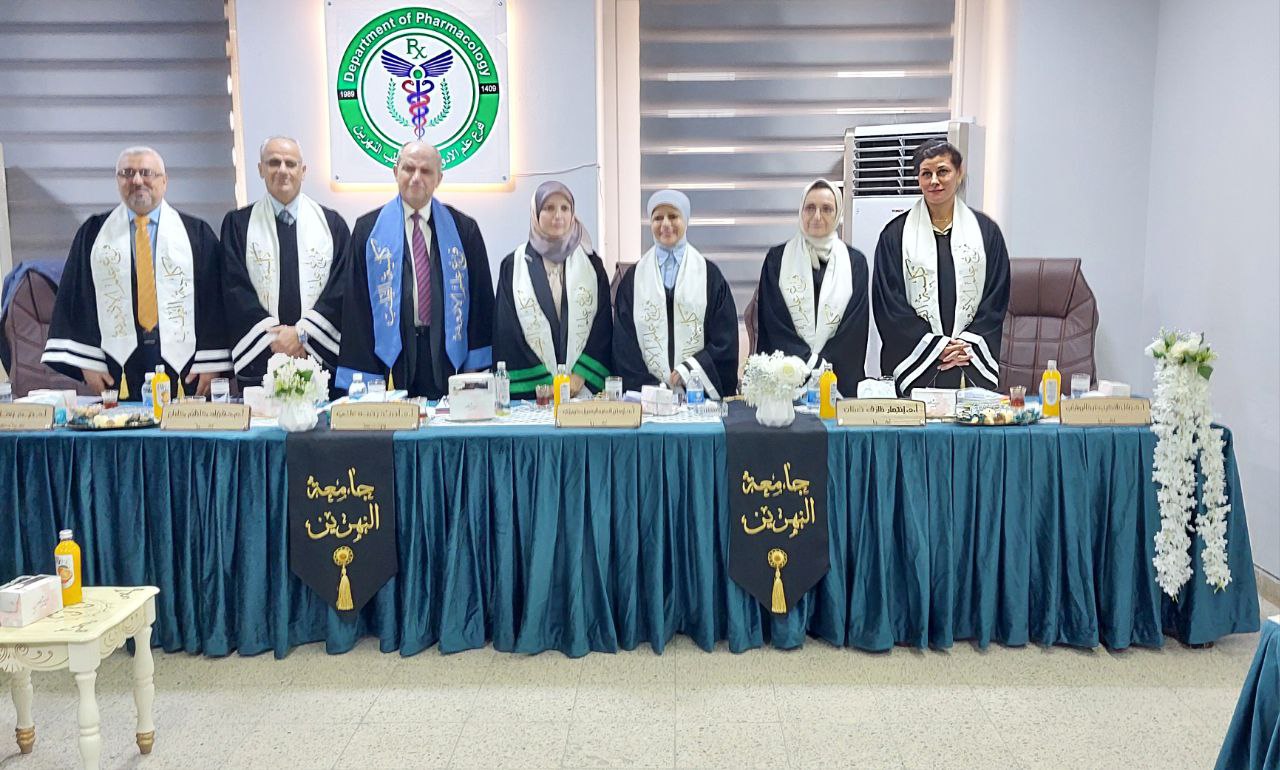
On Sunday, September 8, 2024, PhD candidate Huda Ghassan Hameed from the Department of Pharmacology successfully defended her dissertation titled:
**"Effect of New Compounds C27H24N4O5 and C25H21N5O5 Each Alone on Regulation of Angiogenesis: Ex Vivo, In Vitro, and In Vivo Assay in Rats."**
**Background**: Angiogenesis is the physiological process of forming new blood vessels from pre-existing vessels. It is a crucial process that occurs during various stages of an organism’s life, including embryonic development, wound healing, and the female reproductive cycle. Dysregulated angiogenesis leads to several diseases such as tumor growth and metastasis, psoriasis, and diabetic retinopathy due to excessive angiogenesis, or insufficient angiogenesis, which can lead to cardiovascular diseases and age-related macular degeneration. Modulating angiogenesis has become a therapeutic target in many diseases.
**Objectives**: To determine the anti-angiogenic and anti-proliferative activities of new 1,2,3-triazole derivatives and to investigate the gene expression of vascular endothelial growth factor (VEGF).
**Results**: Through the rat aortic ring assay, a significant inhibition of angiogenesis was observed. The IC50 values of compounds H1 and H4 were calculated to be 11.3 µg/mL and 20.11 µg/mL, respectively, indicating that H1 is more potent than H4. Both triazole derivatives produced a significant inhibition zone in the chick chorioallantoic membrane assay. The IC50 values for H1 on human umbilical vein endothelial cells (HUVECs) were 3.42 µg/mL, 11.11 µg/mL for HCT116 cells, and 4.93 µg/mL for MCF7 cells. The IC50 values for H4 on HUVECs were 154.1 µg/mL, 8.972 µg/mL for HCT116 cells, and 9.103 µg/mL for MCF7 cells. This study reveals that H4 is safer for normal cells and can be considered a potential anti-tumor compound. Both triazole derivatives significantly reduced the expression of VEGF.
**Conclusion**: The current study demonstrated that 1,2,3-triazole derivatives were capable of inhibiting angiogenesis in various experimental models, confirmed by the suppression of VEGF gene expression using real-time PCR. These compounds could be potential anti-cancer drugs.
The defense committee consisted of the following members:
- Prof. Ahmed Rahma Ali (Chair)
- Prof. Intisar Tareq Naaman (Member)
- Prof. Astbrak Abdulrasool Koory (Member)
- Prof. Rafal Shakib Abdulwahab (Member)
- Asst. Prof. Fuad Kazem Kadhim (Member)
- Prof. Haider Baha Sahib (Member and Supervisor)
The dissertation was accepted successfully with distinction.



|